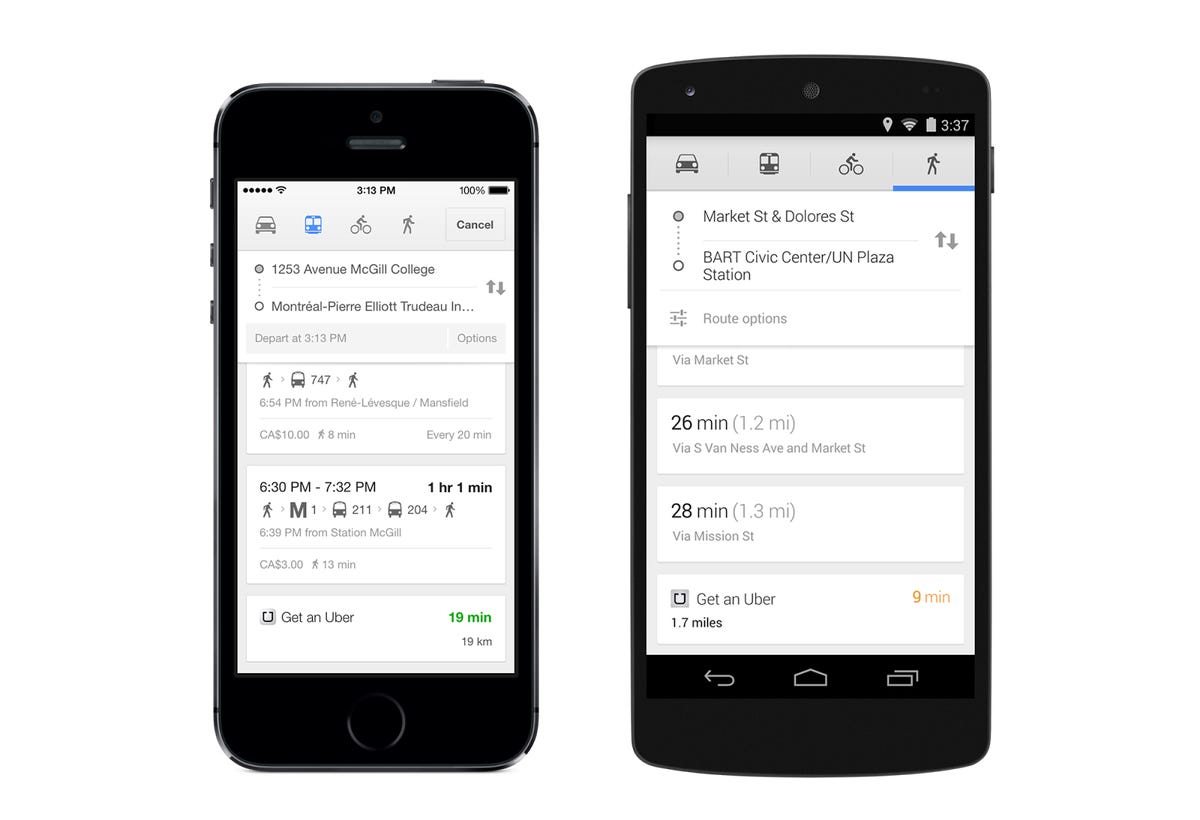
Google brought Uber into its mobile family Tuesday with an update to its iOS and Android Maps applications, integrating the transportation and ride-sharing app as one of its various travel options.
If you have Uber installed and are in a city with Uber service, it will show up alongside walking, driving, and public transportation options to let users see estimated travel times using the car service. The update will also allow you to jump directly into Uber with one tap on the icon within Maps.
This comes as no surprise. After all, Google has had a longstanding relationship with Uber, an app at the forefront of the on-demand and sharing economy movements that has turned urban travel and various metropolitan taxi industries on their heads.
Related stories
- How to time travel with Google Maps
- Uber launches in Beijing, eyes more growth overseas (Q&A)
- The king of maps keeps getting better
- The best maps app you’ll find on Android
In 2013, Google’s investment arm, Google Ventures, sunk $258 million into Uber’s last mammoth funding round of $361.2 million. The investment from Google Ventures constituted 86 percent of the fund’s yearly spending cap of $300 million. That funding round left Uber with a $3.5 billion valuation.
With Uber, users set their location on a map and choose one of multiple tiered driving services, from regular car drivers using their own vehicle and the Uber app to professional drivers that will ferry you around in a window-tinted black car or hulking SUV. The driver picks you up, drops you off, and transactions are all done via the app and your credit card. Uber is now in 35 countries, with a majority of its service available across 56 cities in North America.
The Maps update had a few other perks as well. If you sign into Maps with your Gmail account, you can now save maps for offline use and pull up saved places for quick searching. There are also better location filters for things like dining that brings Maps more in line with Yelp, and Google Maps’ turn-by-turn navigation mode now displays arrival times and distance alongside lane information and alternative routes.
While offline map saving is a huge plus, the Uber integration is likely to draw a good deal of attention considering the Google Venture connection. At this time, it’s unclear whether Google is planning on keeping integration with Maps exclusive to Uber, or whether it will expand it to competing services like Sidecar and Lyft.
Google declined to comment regarding any plans to expand its ride-sharing and transportation app integration to other platforms or services beyond Uber at this time.
Update at 10:42 a.m. PT: Added additional details.



